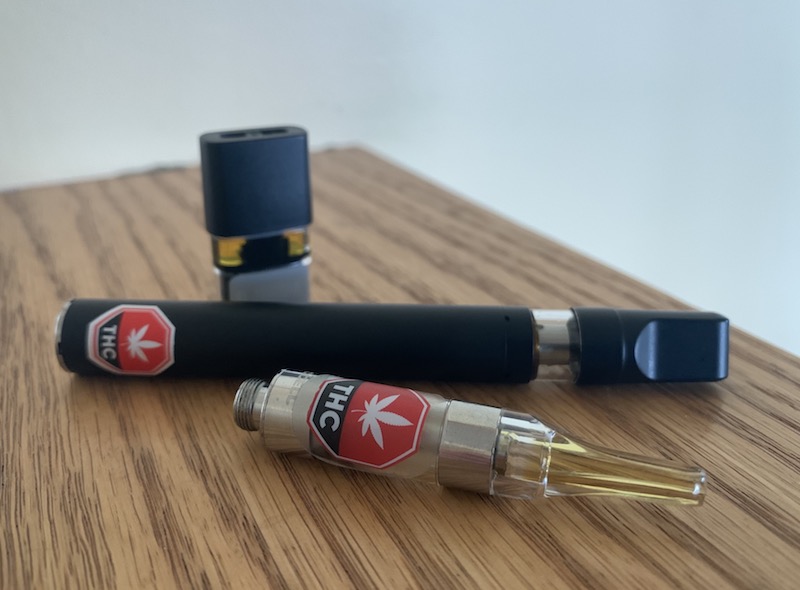News
Canopy black lists vapes with phytol
Published on August 7, 2020 by David Wylie

Canopy Growth has stopped selling vape products that contain phytol as an additive due to health concerns.
Canopy’s chief medical officer Dr. Mark Ware said the decision is based on the results of a soon-to-be published study on the safety of added phytol in vaping oils.
“This new information underscores the need for consistent, science and evidence-based regulations for cannabis products so people have access to safe cannabis products they can trust, made by producers that act with integrity,” said Ware.
Naturally occurring in cannabis, the terpene phytol is sometimes added to vape pen carts because cannabis oil used is too thick to heat and inhale and requires a thinning agent to ensure it is fluid enough to be effective with a pen’s heating coils.
At least one disposable vape pen, ‘bliss’ from the company Dosist, lists phytol as an ingredient. It’s unclear how many other products on the legal market use it as an additive.
“Canopy Growth takes great care in researching its vaping formulations prior to launch, and we stand behind the quality and safety of our products,” said Ware.
“Canopy Growth products do not contain added phytol, and as a precautionary measure, Canopy Growth has ceased sales of third-party vape cannabis products with added phytol in its corporate owned retail stores and confirms that all franchise retail locations have done the same.
“This decision is based on the results of a soon-to-be published study on the safety of added phytol in vaping oils.”
Canopy Growth is Canada’s largest cannabis company, with holdings that include Tweed, Tokyo Smoke cannabis retail stores, and West Kelowna-based licensed producer Doja.
It’s been less than a year since Cannabis 2.0 has come into effect, making new products including vaporizers legal.
Last year, a spate of deaths and hospitalizations blamed on vaping-related lung illness caused alarm just as the new products were about to be released. In some cases, additives to the cannabis oil reacted with the heat in a way that became toxic to the user.
A Health Canada spokesman confirmed to the oz. on Friday that it had been sending requests for additional information on the composition of vaping products that contained ingredients other than cannabis.
“To clarify, the requests sent to select licence holders in mid-July were not related to phytol but are part of the Department’s ongoing requests for additional information that began in November 2019 to better understand the composition and makeup of vaping and inhalable products that are going to be released into the market place,” said Health Canada in a statement.
The information helps the department identify potential hazards related to particular compounds or formulations. Health Canada said that provides an opportunity to intervene before a product enters the market if the department has concerns or questions.
“Licence holders are responsible for ensuring that all their products meet the requirements set out in the Cannabis Act and Cannabis Regulations, including not selling a cannabis product that contains anything that may cause injury to the health of the user when used as intended or in a reasonably foreseeable way,” said Health Canada.
Updated Aug. 7, 3:15 p.m., with comment from Health Canada.
Updated 4:45 p.m., writethru
Leave a comment on our Facebook page.
© Copyright 2020 Okanagan Z. | About the oz.
Report a Typo or Inaccuracy
We strive to avoid typos and inaccuracies. However, on occasion we make mistakes. We value your contributions and help in correcting them.